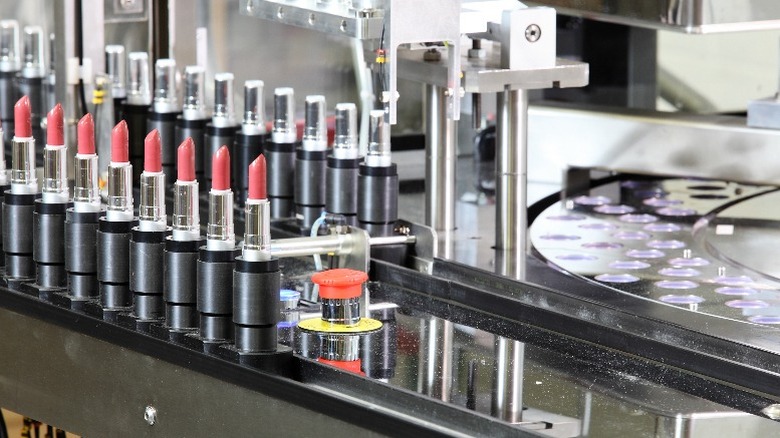Cosmetic Chemist Unpacks How New Beauty Legislation Could Affect Your Favorite Brands - Exclusive
Makeup and skincare lovers might know that the Food and Drug Administration, or FDA, has a distinct position when it comes to overseeing the cosmetics industry. While all ingredients used by cosmetics brands to create their product formulas are highly regulated under the FDA, cosmetic products do not need FDA approval. For decades, there were two main laws that further facilitated the relationship between cosmetic brands, the FDA, and consumers: The Federal Food, Drug, and Cosmetic Act, otherwise known as the FD&C Act, which was signed into law all the way back in 1938, enforcing market standards for certain products and ensuring that products were properly labeled for safe use. The second being the Fair Packaging and Label Act, or FPLA, which was enacted in 1967, ensuring that a product includes further identifying information on its packaging. Now, a third regulatory law has entered the mix, and cosmetics consumers are curious as to how it will change the beauty landscape.
The Modernization of Cosmetics Regulation Act, or MoCRA, was signed into law in December of 2022 and stays true to its name. The FDA calls it "the most significant expansion of the FDA's authority to regulate cosmetics" since the FD&C Act was passed close to a century ago. After extensive lobbying from industry advocates who believe consumers had a right to greater cosmetic protections, MoCRA represents the first federal response to this call. Women.com spoke exclusively with Consultant Cosmetic Chemist, Kelly Ann Dobos, about how the legislation could impact both consumers and the industry alike.
What does MoCRA entail?
MoCRA will heighten its regulatory efforts by implementing several substantial measures. "Many companies will need to prioritize using scientific principles and allow for sufficient product development timelines to ensure product stability and safety are properly vetted no matter what the product form or ingredients are," Dobos exclusively tells Women.com. On the manufacturing side, processing agencies will now be required to register with the FDA and go through a renewal process every two years, as well as follow Good Manufacturing Processes (GMPs) that the FDA will outline, thus heightening the quality and safety of production operations. While fabulous for consumers, Dobos believes that adhering to such regulations could be expensive for cosmetics companies. "I think the most significant impact will be in the number of brands that can bear the increased [costs] for manufacturers to comply with GMPs, which were previously only mandated for drug products, and handling of additional documentation and registration requirements," she said. These costs could mean increased prices for consumers, she notes.
Brands are also mandated to report "serious adverse events" after a consumer uses the product, and must maintain safety records that can be accessed by the FDA. The FDA will also have the ability to recall cosmetics from the market for several reasons, including that the product could cause serious harm to consumers, or to ensure proper labeling of a product.
How will MoCRA change the beauty industry?
Speaking of labels, MoCRA also requires that brands label fragrance allergens in their products, where allergens can cause reactions in the skin when found within a topical product, which is a win for transparency. Remember, however, that allergens and irritants involve different mechanisms. There are more than 2,500 fragrances used in cosmetics and household products, yet only 26 are required to be identified as allergens on products in Europe as of 1999, according to the European Commission. The FDA currently acknowledges these 26 fragrance allergens.
Dobos exclusively tells Women.com that MoCRA could have implications for "clean beauty" brands. While most "clean beauty" brands do not include synthetic fragrances in their formulations, essential oils can still be considered allergens. Certain synthetic preservatives are also considered allergens, yet swapping those out for natural preservatives could instigate other issues. "The unintentional consequence of the movement is that these 'clean beauty' products are sometimes actually less safe for consumers because they have removed safe, effective preservatives from their products resulting in potentially harmful microbial contamination," she says. Remember the Kosas concealer mold incident? (We haven't forgotten.)
Calling a product "clean" does not have any regulatory definition by FDA standards, either. "While MoCRA doesn't specifically address these confusing and sometimes misleading "clean beauty" claims, the safety substantiation and documentation requirements in the legislation are going to have an impact on how these claims are backed up," Dobos says. While Dobos does not expect a mass reformulation to occur in the cosmetics industry, as products on the market are largely safe to be used, she does expect some brands to reconsider their labeling practices or marketing materials.


